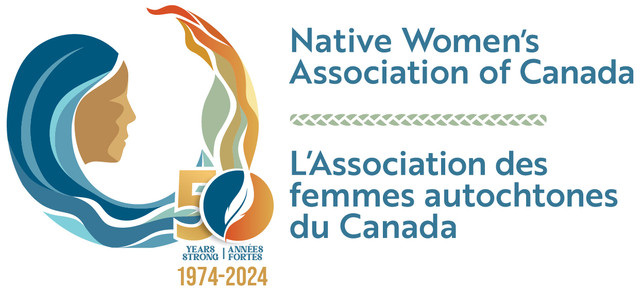In this issue, the Economic Development Team offers updates on four economic development programs.
Community Workforce Development Program
Funded by Employment and Social Development Canada (ESDC), the Community Workforce Development Program aims to improve the lives of Indigenous women, girls, and gender-diverse (WG2STGD+) people living in communities with populations of less than 10,000.
The program consists of two pillars: online or in-person skills training; and facilitating work placements at local small- and medium-sized employers (SMEs) by providing wage subsidies for those who have completed their training. The aim is to encourage local employers to hire the individual once the subsidized work placement ends.
The training sessions cover a wide range of skills, including digital literacy, job-specific proficiencies, and hands-on trade-like abilities such as barista or culinary training. Such a diverse range of training opportunities is designed to equip participants with as many skills as possible to help them thrive in the workforce.
NWAC is implementing the project in collaboration with our provincial and territorial member associations (PTMAs). The PTMAs identify the communities and determine local labour market needs by engaging with SMEs to determine job opportunities and skills required.
To date, six PTMAs (Saskatchewan, Manitoba, British Columbia, Prince Edward Island, Nunavut, and Newfoundland and Labrador) have signed agreements. NWAC continues to work on securing agreements with four other PTMAs that have verbally agreed to participate (Alberta, Yukon, Northwest Territories, and New Brunswick).
PTMAs will receive a maximum of $27,000 to help cover administrative costs for implementation. Instalment payments will be made as milestones are met. Manitoba and Saskatchewan PTMAs are in the process of receiving the first and second milestone payments, respectively.
In Saskatchewan, participants from the Grasswoods community have completed online training for the retail sector and work placements are under way with a local SME.
In Manitoba, participants are enrolled in training to prepare for work in early childhood education. The courses include first aid/CPR, health, nutrition and safety, WHIMIS, and safe food handling. The Nikanihk Ascahkosak Daycare has signed the work placement agreement and developed a training plan for the participants. The work placement is tentatively scheduled to start in February 2024.
We have held meetings throughout November with the Aboriginal Women’s Association of Prince Edward Island (AWAPEI), Newfoundland Native Women’s Association (NNWA-NFLD), and Yukon Aboriginal Women’s Council (YAWC). The focus of these meetings was to identify participants and SMEs. NWAC continues to provide posters to support the PTMAs’ efforts to recruit participants.
The first of three roundtables is scheduled for December 12, 2023. It will bring together academics, policy-makers, and community leaders to discuss the labour market situation for Indigenous WGBTQ2S+ people.
The outcome of these roundtable discussions will be used to develop a national workforce strategy for Indigenous WG2STGD+ people. Our goal is to identify and make recommendations to address the unique challenges faced by Indigenous communities and help contribute to overall economic empowerment.
We are eager to see this transformative project unfold, paving the way for a brighter, more inclusive future for all.
#BeTheDrum
#BeTheDrum is an entrepreneurial outreach and navigation program that has been operating for over three years. It was developed by NWAC and is funded by Innovation, Science and Economic Development Canada. It is designed to build the skills of Indigenous women and gender-diverse people entering the spheres of business, management, and entrepreneurship. #BeTheDrum is very successful, with over 350 Indigenous women and gender-diverse entrepreneur members to date.
#BeTheDrum works to engage and prepare existing and budding Indigenous entrepreneurs for continued success. Those who join our program are greeted by a team of dedicated entrepreneur navigators and mentors, with access to relevant workshops, networking events, peer-to-peer groups, and live social media Q&A sessions. This support helps to increase the likelihood of businesses becoming successful enterprises.
#BeTheDrum offers a vast array of topics for its workshops.
In October, Amy Silva facilitated a workshop on “Let’s Talk about Doula Business” and Thaiza Emidio Graham led a workshop on “Opening a Home-Based Beauty Business”.
In November, Lizanne Leclair presented “Goal Setting Through Stressful Times” where she provided information on how to set goals, maintain focus, and achieve work–life balance. Christine Luckasavitch gave a presentation on “Keeping a Good Heart: Navigating Colonial Structures in Business,” where she discussed how to identify, tackle, and help create an economic environment where Indigenous businesses can thrive. Amanda Pierce led an interesting workshop on “Social Media for Artists”. She explained how she uses social media to share and sell her artwork and provided tips on building an audience on FaceBook and Instagram.
Our bi-weekly networking circles continue to attract a diverse group of Indigenous entrepreneurs. These events are hosted by matriarch and Olympian Waneek Horn-Miller, who plays a vital role in providing a platform for collaboration and knowledge-sharing among members.
Indigenous Women’s Entrepreneur Accelerator
The WES Accelerator program holds one workshop and one networking circle every month. Workshop topics include “Creativity in Digital Spaces”, “Artistry and Digital Illustration”, “Making it in the Beading Industry,” and the “Art of Entrepreneurship”. We also continue to provide mentorship and navigational support to member entrepreneurs.
POETA
In September 2023, NWAC launched the POETA project in Canada in collaboration with The Trust of the Americas and Microsoft. This initiative aims to empower historically marginalized Indigenous populations in the country, placing a specific focus on women and gender-diverse individuals. NWAC provides comprehensive training and content on digital skills. Additional components address life and technical skills.
The POETA project is meant to enhance the skills and profiles of job-seekers and entrepreneurs aged 16 and above within the First Nations, Inuit, and Métis populations in Canada. The ultimate goal is to help them participate in the digital economy. This initiative represents a crucial step towards addressing the unique challenges faced by Indigenous communities and fostering sustainable opportunities for growth and success.
In October, the successful launch of the POETA project in Canada was celebrated through a well-received kick-off webinar. Phase 1, known as the Train the Trainers training, concluded successfully. Over a two-week period, comprehensive training was delivered to 10 facilitators on the Microsoft Community Training (MCT) platform.
In November, we began recruiting participants for training. In collaboration with NWAC’s Communications Department, a call for participants was advertised on our social media channels. In addition, an invitation to participate in POETA was extended to #BeTheDrum members, which resulted in more than 10 members registering for training.
A total of 70 participants have registered for Training 1 on Microsoft Learning Pathways, which begins on December 4 and continues for two weeks. This group will be the first cohort. The participants are organized into four groups and each group is assigned to a specific trainer.

